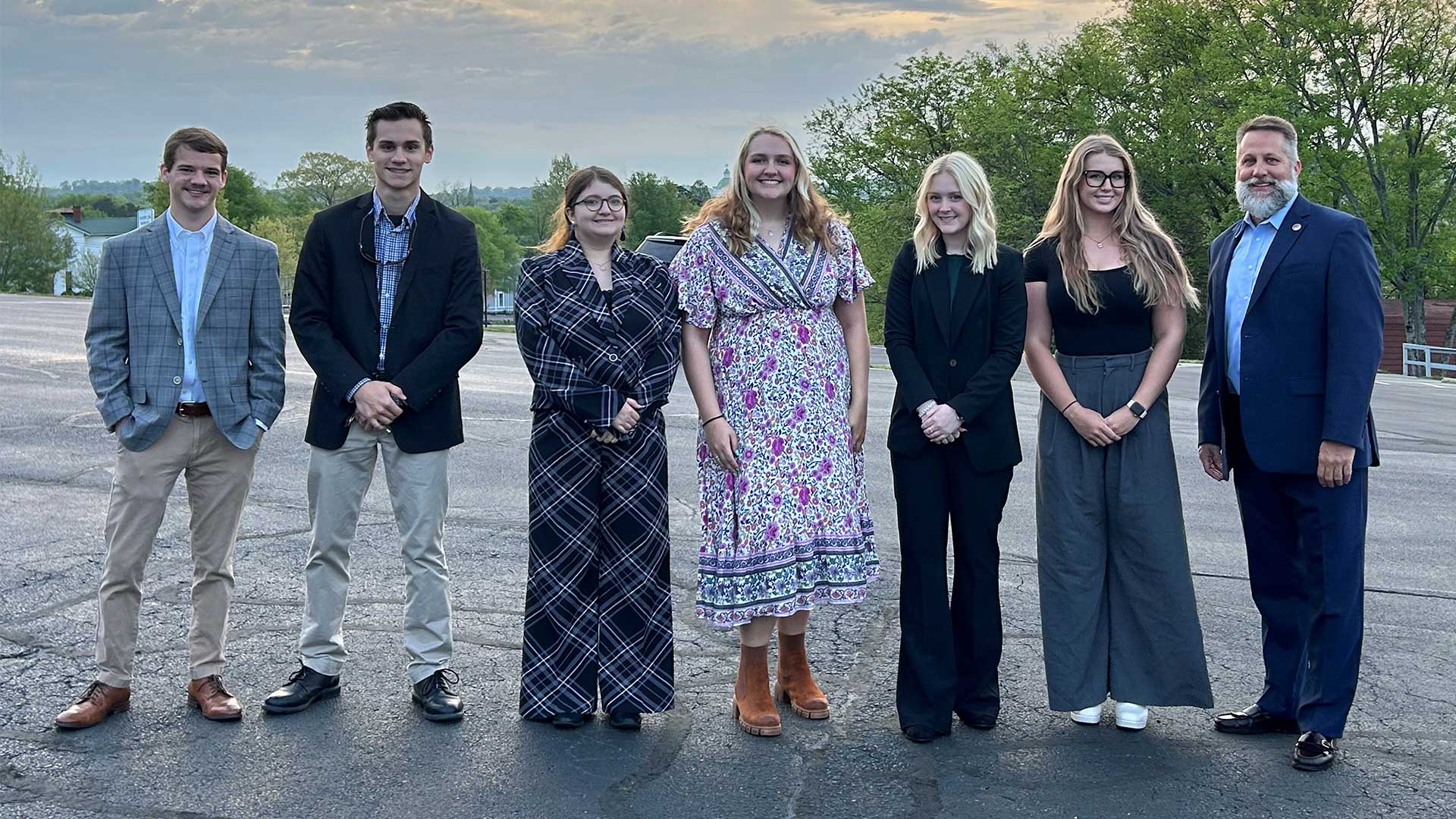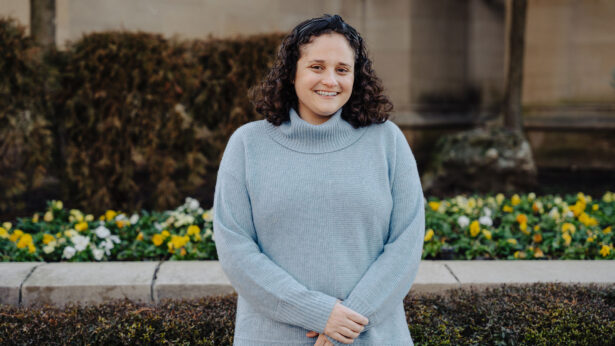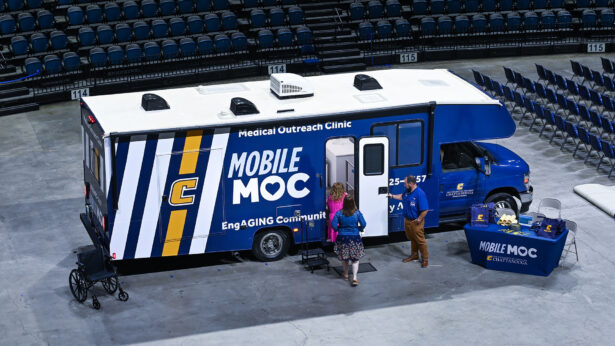Listen to this story
On March 25, 2021, a tornado almost hit Lillie Runions’ home in Waynesboro.
That terrifying experience led Runions to take action.
For her project as part of the inaugural class of Ingram Scholars at UT Southern, Runions raised enough money to purchase 110 weather radios for Wayne County residents living in Clifton, Collinwood and Waynesboro.
The Ingram Scholars program provides an opportunity for exemplary UT Southern students from 13 rural counties in South Central Tennessee to help their communities while networking with local leaders. Participants in the year-long extracurricular leadership program receive one-year $2,500 scholarships.
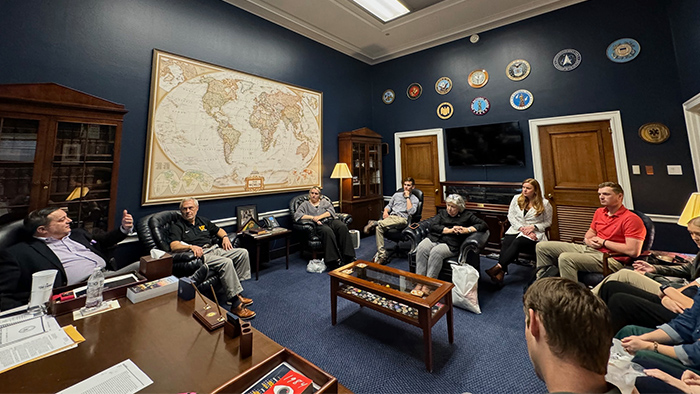
The program is open to students from Bedford, Coffee, Franklin, Giles, Hickman, Lawrence, Lewis, Lincoln, Marshall, Maury, Moore, Perry and Wayne counties. Applicants must have a minimum 3.0 GPA and score at least 25 on the ACT. There were seven scholars in the 2023-24 class; the 2024- 25 class has six. While the program is still in growth mode, Director Pat Ford says the goal is to have one student from each county in each class.
Developing Local Leaders
The Ingram Scholars program grew out of conversations between UT Southern Vice Chancellor of Advancement Evan Beech and Orrin Ingram, chairman of Ingram Industries, a Nashville-based business conglomerate. Ingram also owns an Angus cattle farm in Giles County.
Ingram, who has committed to funding the program for at least five years, “is trying to develop the next set of leaders, the next workforce for Tennessee,” Beech says.
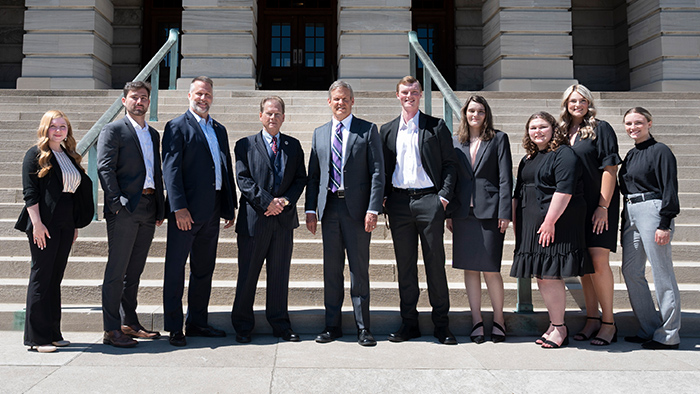
Ford’s resume made him the ideal program director. An alumnus of UT Southern, he directs the business management program in the D.W. Johnston School of Business. He also directs internships and the First Year Experience program. In addition, he was mayor of Pulaski for 12 years. Ford says there are two facets to the Ingram Scholars program.
“The first is helping students learn how to build their network—putting them in front of community and state leaders and helping them learn how to work the room.”
Ford takes the scholars to meet each county’s leaders. He also takes them to Nashville to meet with legislators and the governor. In May, he took a group to Washington, D.C., to meet elected officials and staff members. They also toured the White House, the Capitol building, attended a play at Ford’s Theatre and enjoyed a Washington Nationals baseball game.
For the other part of their Ingram Scholars experience, students identify an issue in their hometown and then come up with a plan to address it.
Tackling Hometown Issues
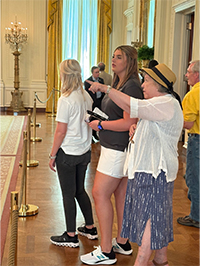
Like many of her fellow scholars, Runions chose an issue she’s passionate about.
“Wayne County has experienced two EF2 tornadoes in the past four years. One hit a half mile from my house and cut off power to the entire county,” she says. “After speaking with local first responders, I decided to fundraise for weather radios and distribute them throughout the county.
“Radios are needed because many parts of the county lack good cell service. Also, Wayne County is very large and rural. For instance, it takes an ambulance 45 minutes to reach remote parts of the county.
“None of the cities have tornado sirens. Wayne County only has four sirens, and they are located near the unincorporated communities of Cypress Inn and Lutts.”
Runions secured funds from each city and from civic groups, and she contributed $230 herself. The total, $4,345, bought 110 radios.
“These radios are currently being distributed via the fire halls. The firefighters know those communities best, so they are giving the radios to the people who need them.”
Novel Learning Experiences
Mercie Ashmore and Colin Cheplen are part of the 2024-2025 class of Ingram Scholars.
“My career goal is to own my own business one day where I can leverage my skills and passion to make a difference in people’s lives,” says Ashmore, of Lewis County, a freshman in business management. “The Ingram Scholars program can provide me with hands-on experience and networking opportunities that will prepare me for my career.”
Cheplen, a sophomore from Giles County, is majoring in behavior science/general psychology and hopes to go to law school.
“I wanted to participate in this program because of the opportunities it gives for meeting the people who run my county and my district,” he says. “It will give me the opportunity to see how the law works in the context of passing bills through the state House, the state Senate, and the relationship that they have with each other.”
Like some of the other Ingram Scholars, Cheplen is experiencing some firsts through the program: his first visit to the State Capitol building, his first airplane flight and his first trip to Washington, D.C.
“I am so grateful to be able to do these things that I otherwise would not be able to,” he says. “This is a very exciting program for me, and I hope to be able to show people just how meaningful it can be—not only for the student participants but also for the rural Tennessee communities that we are striving to help.”
